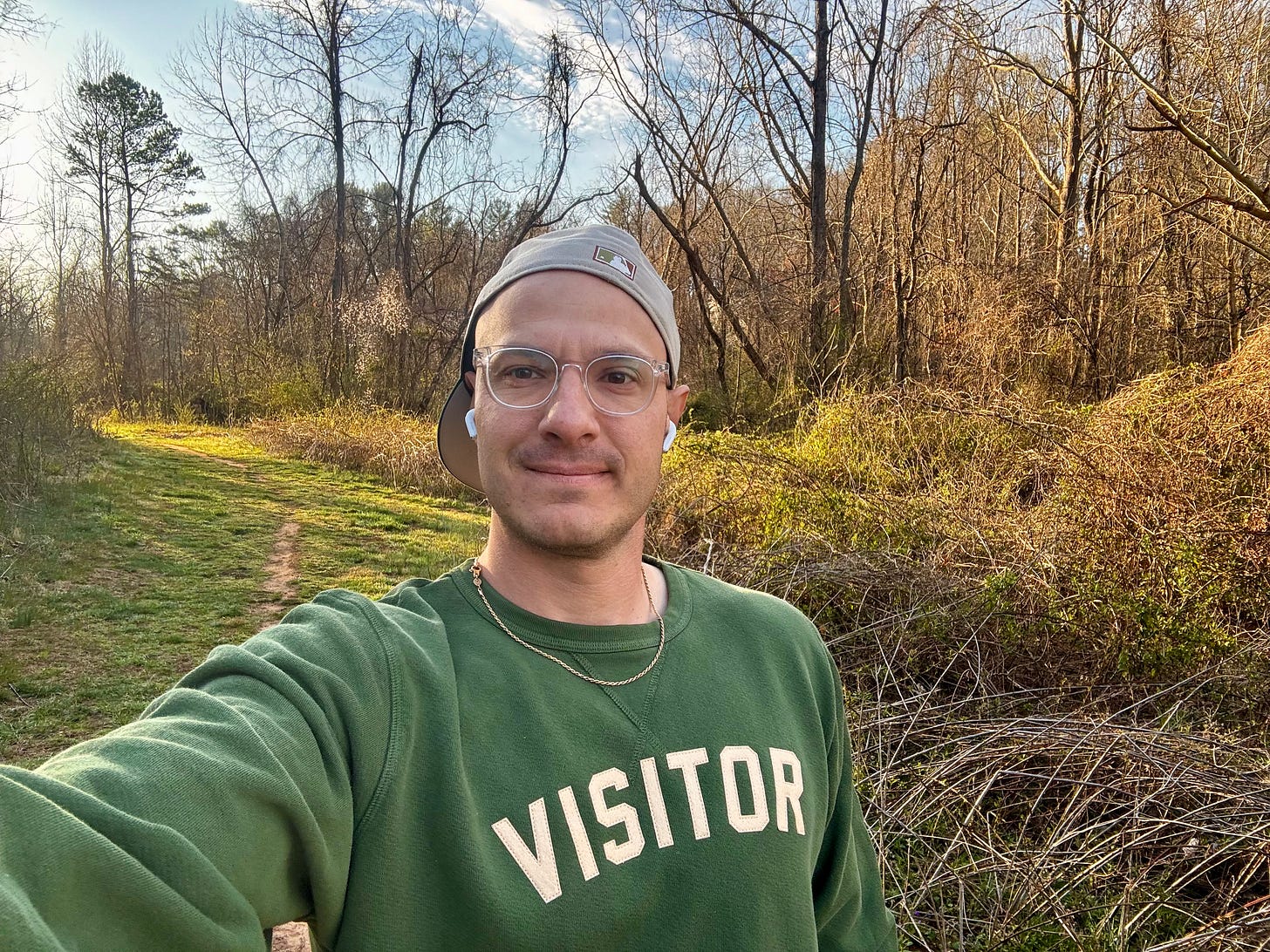12 Lessons That Helped Me Survive My Mental Health Crisis
My experience with anxiety, depression, and OCD
In 2017, I was blindsided by intense anxiety and depression. Eventually, I was diagnosed with a subtype of OCD known as “Pure O.” Intrusive thoughts and feelings took over my life. I was debilitated for the better part of a year. I had just published a bestselling book called Peak Performance, and yet here I was, challenged to leave my house.
Among other terrible things, I felt like a fraud. Worthless. Crazy. Not worthy of love.
Eventually, after nine months, I wrote about my experience. It was not easy, but the first thing I learned is that I was far from alone. I received hundreds of messages from others sharing their own experiences of depression, anxiety, and OCD. What surprised me at the time—but doesn’t anymore—is that many of these people were world-class at what they do.
Some think excellence and mental health struggles are mutually exclusive—that if you wrestle with your mind, you can’t achieve your own version of greatness.
That couldn’t be further from the truth.
People from all walks of life endure seasons of darkness, even those who are the best at what they do. When I first got sick, a senior psychiatrist, someone at the top of the field, told me that a big part of life is playing through the pain.
Mental illness does not make you less of a person. It does not take away from your accomplishments or expertise. It does not make you permanently weak or broken. And yet to this day, so many people still suffer in silence, confusion, and shame.
For the first 18 months of my mental health crisis, I was mainly focused on surviving. But as I progressed in my recovery, I promised I would not shy away from addressing these topics in my work.
Since then, I’ve done plenty of reflecting and writing. I still don’t like revisiting my darkest days. There is always a part of me that worries writing about this stuff will cause it to come back with a vengeance. But a piece of my own recovery is facing that fear. And with May being Mental Health Awareness month, I think it’s important to talk about.
If I had to try and come up with the most important lessons I’ve learned during my own mental health journey, it’d be this:
1. If you are experiencing a level of distress that feels abnormal for you, find someone you can share it with and seek professional help as soon as you can. Don’t be scared to get help.
2. Be patient. Navigating mental illness is a nine-inning game. You may desperately want to be in the bottom of the eighth inning when, in reality, you are in the top of the third.
3. Make a promise to yourself that you will keep showing up, and when that feels impossible, make a promise to yourself that you’ll share those feelings with someone who cares about you and who can support you in that moment.
4. Know that your brain is playing tricks on you. It will tell you that you are stuck, that this is forever, that you never had a past without feeling this way. But even if it’s only with one percent of yourself, remember these thoughts and feelings are impermanent.
5. Be kind to yourself. It takes massive self-discipline to show up and navigate mental illness. You’ve got to learn self-kindness too.
6. Resist dogma. Explore all the evidence-based tools available to you: therapy, medication, exercise, and support groups. Stigma is stupid. All can be effective.
7. Do not worry about growth and meaning.
If these qualities are going to come, they will arrive on their own terms. But you don’t need to put extra pressure on yourself. When you are in the thick of it, simply getting through is enough.
8. People want to help, and yet they may not understand what you are going through. Don’t hold it against them. I used to think depression was like sadness; anxiety was like worry. It wasn’t until I experienced these things firsthand that I realized they are in a different universe. Even though some people may not understand, keep being vulnerable. It will help you find others who have undergone similar experiences.
Lean on these people most.
9. Behavioral activation is a powerful tool.
It means forcing yourself to get started, even when you don’t want to. It is nearly impossible to think yourself into a new state, but taking productive actions—even the smallest ones, like doing a load of laundry—can lead to big shifts in thoughts and feelings. Don’t beat yourself up. Just get started.
10. Just getting started sounds so simple, but simple does not mean easy. I think about it as a gentle yet firm persistence. So much of working through mental health challenges relies on it. This is really hard; I wish this weren’t so. I’m doing the best I can. Over and over again.
11. This may sound absurd, but try to accept what you are going through. Anxiety and depression in particular resist control. Acceptance does not mean passive resignation or giving up.
It means acknowledging what is happening and not fighting it so much as taking skillful actions and letting it move through you. It’s an ongoing project, the work of a lifetime.
12. Be patient. Be patient. Be patient. I come back to this because it’s so important. It takes time for therapy and medication to work. It takes time for the seasons to change.
A big part of what makes mental illness so hard is the brain slows time down and makes everything feel stagnant. Knowing this is an illusion provides hope and strength to keep trudging on.
Mental illness arises from a complex linking between one’s genes and environment, and the triggers underlying its onset are often hard, if not impossible, to pinpoint. Not to mention, the same personality traits and brain chemistry that underlie our greatest gifts—for example, the ability to think obsessively and problem-solve relentlessly—can also give rise to our most awful curses.
Part of why I share my story is simple: maybe it helps someone feel a little less alone.
The word “compassion” comes from “co” (with) and “passio” (to suffer). Compassion means to suffer with. If there’s any consolation from mental illness, maybe it’s this: It deepens our compassion: for others, and for ourselves.
But perhaps the most important thing I’ve learned is that if you are struggling with mental illness, there is no need to be ashamed or embarrassed, no need to keep it to yourself. Talking to others who have had similar experiences can help. Therapy can help. Medication can help.
If you or a loved one is in any kind of deep hole, please seek out the support you need, especially from trained professionals. (You can talk to someone right now at the Suicide and Crisis Lifeline by dialing 988.)
Even though it may seem impossible, it can get better. Keep going ❤️






This article was meant for me today. I got to work today and just didn't want to go in. Just felt depressed and anxious. So I went on a walk. And then kept walking. Covered more than 5 miles before I finally decided to go in. Then I read your post. Thank you.
I'm re-reading Master of Change. It's such a great book. I'm trying to apply it's principles to what we're seeing with AI. It feels like the world's on fire. It's so hard to be open to the flow of life when everything feels like it's changing so rapidly and exponentially. In addition, I've worked on my craft for so long, and now these LLM's seem to do it in seconds. It's really hard for me to wrap my head around. But, at the end of the day I tell myself this: AI will never have a voice, and it will never care about what it's writing. Most importantly, it will never stop me from making my art.
Still. Some days are hard.